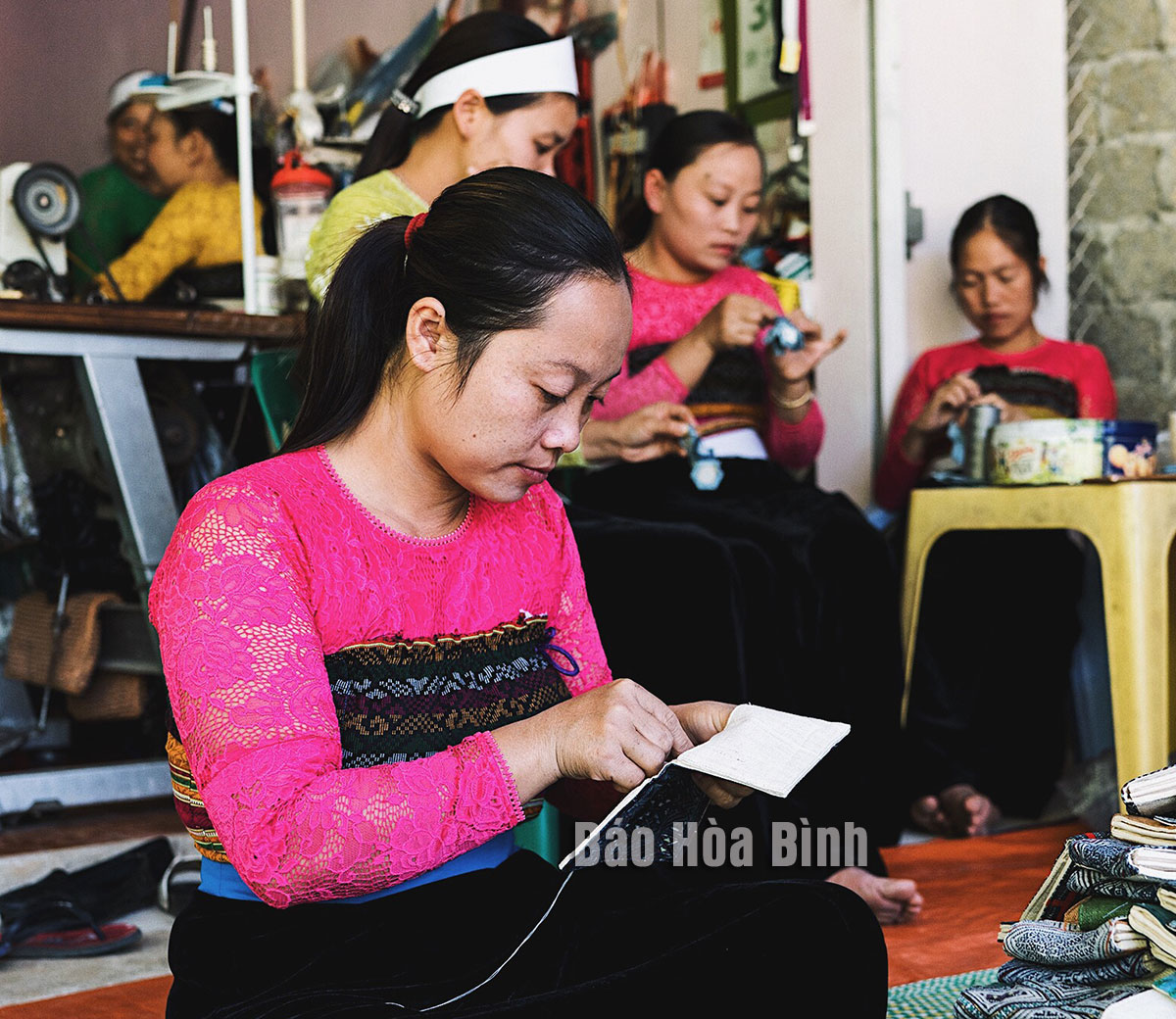
Women in Tong Dau commune, Mai Chau district have jointly opened a cooperative specialising in making brocade products as a way to preserve traditional brocade weaving and increase their incomes.
Members of Tong Dau Cooperative in Tong Dau commune, Mai
Chau district make brocade products.
Mai Chau is a popular tourist attraction in Hoa Binh province offering
community-based tourism, cultural, ecological and resort tourism. It is home to
Thai people with a long-standing culture that can be seen in their lifestyle,
costumes, farming style and stilt houses. Notably, when it comes to the cultural
quintessence of the Thai people, it is impossible not to mention the
traditional brocade weaving.
Recognising the value and significance of brocade weaving in
preserving the Thai culture, women in Tong Dau commune have established the
Tong Dau Cooperative.
Ha Thi Ha Chi, deputy director of Tong Dau Cooperative said that
the cooperative is developing a project on preserving and developing the
traditional weaving and dyeing profession of the Thai ethnic group in a green
direction associated with community tourism in Mai Chau district.
The project will compete in a contest launched by the Vietnam
Women's Union on women's startups and green transformation. It aims to improve
the production capacity of woven and dyed products of the Thai ethnic group,
train local younger generation in traditional weaving and dyeing skills and
develop the market for naturally dyed textile products. Currently, all of the
cooperative's products are sold to organisations and businesses that signed
contracts with the cooperative.
Members of the cooperative have also actively applied
innovations in weaving to perfect their products. Besides skills that the women
learnt when they were little girls, Tong Dau women work hard to create products
that meet consumer tastes today.
The typical characteristic of brocade patterns is the complex
combination of colours without being showy. The main patterns are flowers,
leaves, plants, birds or shapes arranged in a balanced manner according to
rules. Brocade products are used in a variety of ways, from making costumes to
accessories, most commonly handbags. Other brocaded items include wallets,
backpacks, bracelets, and earrings. Brocaded products are also used to make
household items, as dowries for daughters when they get married, and souvenirs
for tourists.
In addition to conventional sale, the cooperative also sells its
products online through its website, social network accounts and e-commerce
platforms such as Shopee and Tiktok.
The cooperative also plans to enter into joint ventures and partnerships
with other cooperatives in Hoa Binh and other provinces to promote its brand.
Lo Thi Thuy, Vice Chairwoman of Tong Dau Commune People's Committee, said that
to enhance the values of local traditional products, the commune authorities
always create favourable conditions for the cooperative to develop its
production and expand market.
The People’s Committee of Lac Son district held a ceremony on April 28 to receive the provincial relic certificate for the ancient rock carving site at Suoi Co stream, located in My Thanh commune.
A special music show titled "The country is in the fullness of joy” has been held at Hoa Binh Square in Hoa Binh city in celebration of the 50th anniversary of the liberation of the South and national reunification (April 30, 1975–2025).
The People's Committee of Lo Son commune, Tan Lac district, has organised the local annual traditional stream fishing festival on April 19 - 20.
As a land deeply intertwined with human history and Vietnam’s millennia-long journey of nation-building and defence, Hoa Binh is often revered for its epic tales and legends.
Residents of Hoa Binh boast a rich cultural identity, reflected in their unique language, traditional attire, customs, and folk melodies – described as "sweet as honey, clear as a mountain stream.”
Lac Son district’s Vu ban town held the 2025 Truong Kha temple festival on April 12–13 (the 15th–16th days of the third lunar month). Since its revival in 2019, the festival has been organised every three years, preserving valuable intangible heritage while meeting the community’s cultural and spiritual needs.



